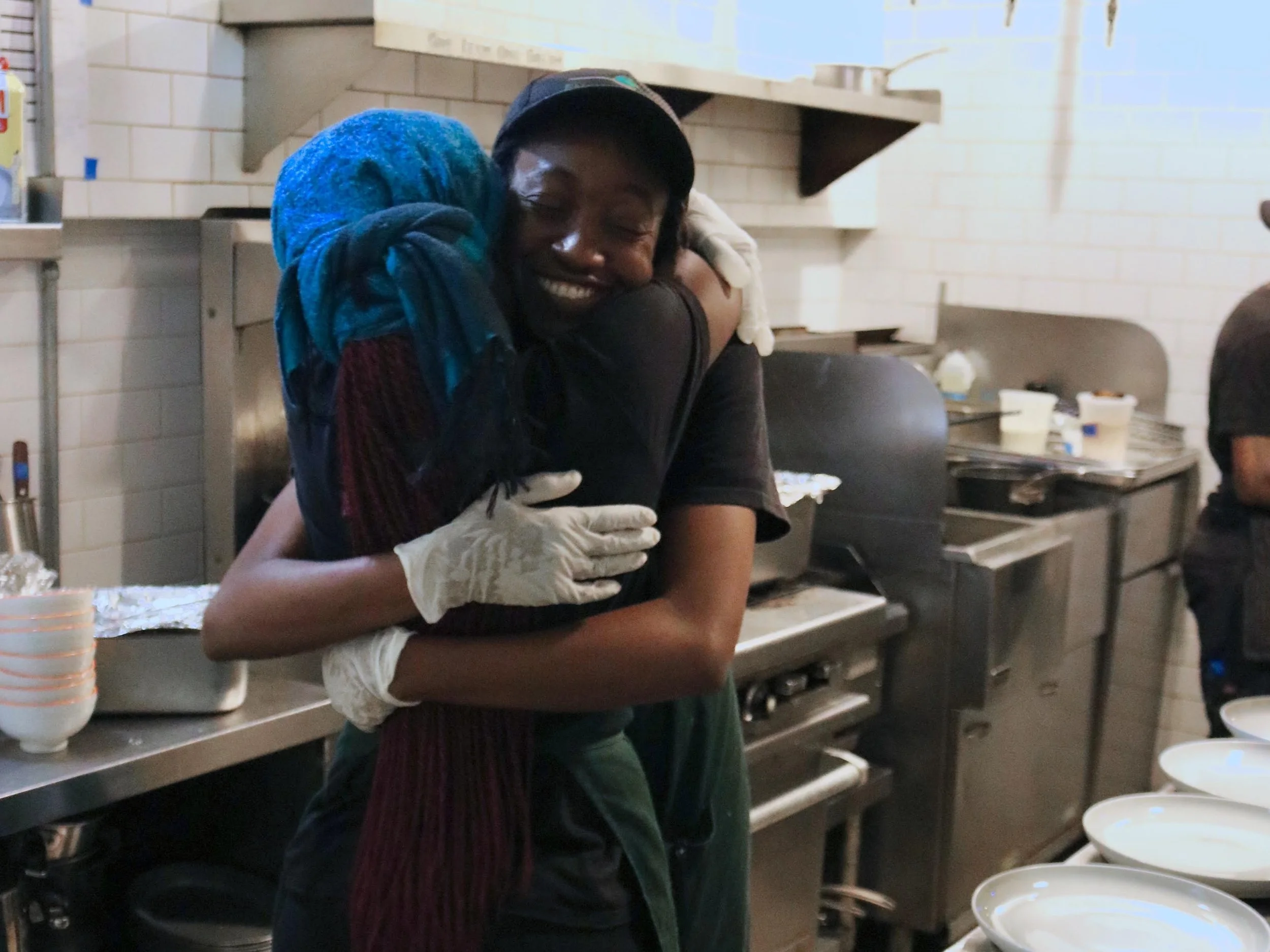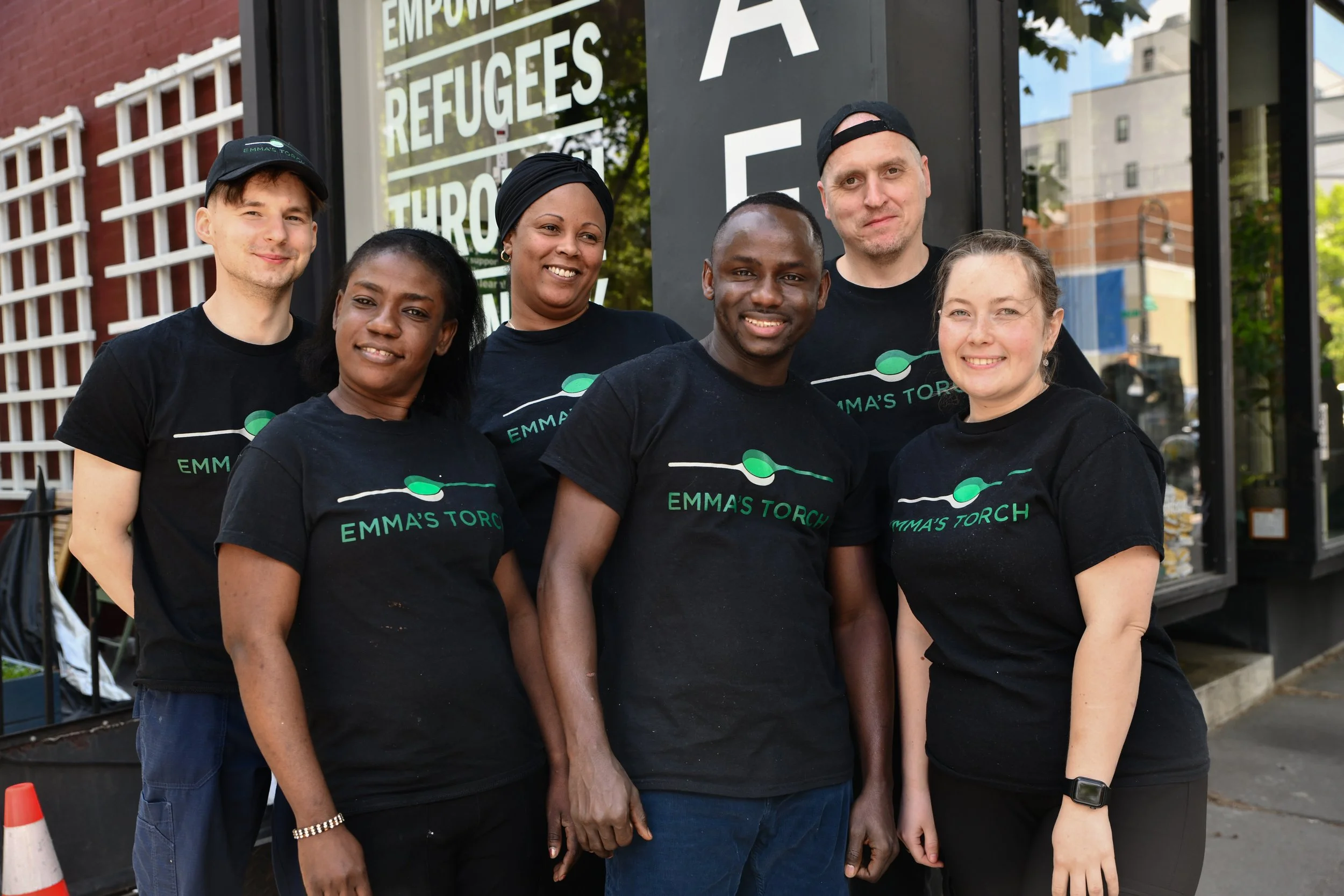Goodbye On Purpose
By Kira O’Brien, Chief Impact Officer
We are a transitional employment model by design.
Our students work with us full-time for 11 weeks during their time in our program. They spend four weeks in our classroom, followed by six weeks working on the line in our operations. Whenever you visit our cafés or enjoy our catering, our students are the hands and hearts behind the food you’re eating.
Then, they graduate. They move on to the next thing. They leave.
This is intentional. We have always operated in cycles, mirroring the rhythms of life. The sun rises and sets; new cohorts begin and end.
One question we often get is: Why? Why not employ students permanently? Why the constant goodbyes?
It’s by design. Here’s why:
We have ambitious goals.
Not just for our students, but for all newcomers and the culinary industry as a whole- and we’re working hard to reach them.
In 2025, we aim to serve more than 200 students across our locations and ensure that each earns at least $30,000 more than their pre-program wages. That kind of impact transforms not just individual lives, but entire communities. Our ability to serve that many students depends on welcoming new participants every six weeks and saying goodbye to others.
We are more than an employer.
As a nonprofit and as professionals trained to support people through major transitions, we are often entrusted with deeply personal information- sometimes more than any traditional employer would have. We also build close, supportive relationships that we want students to rely on long after graduation.
If we employed students permanently and something led to their departure, it could put those relationships at risk. We believe our greatest long-term impact comes from being a consistent supporter, not an ongoing employer.
Our kitchens are small.
In both New York and D.C., our kitchens are tiny… truly tiny. We don’t have the capacity to hire every graduate, and doing so selectively would risk creating the appearance of favoritism.
And most importantly: the goodbye itself.
All of our students are survivors of forced migration. By definition, they have experienced trauma around the idea of goodbye. Some had to flee their homes in the dead of night. Others never had the chance to say farewell to friends or loved ones. For many, goodbyes can feel scary, painful, and deeply triggering.
We want to help rewrite that narrative. We want students to see that goodbyes can be good.
Trauma Informed Care
Everything we do at Emma’s Torch is grounded in the principles of Trauma-Informed Care, which are:
Safety
Trustworthiness and Transparency
Peer Support
Collaboration and Mutuality
Empowerment, Voice, and Choice
These principles shape every aspect of our transitional employment model. In practice, this means:
From day one, students know exactly what to expect. We talk about graduation on the first day and continually help students visualize what comes next. Our consistent schedule provides reliability.
We cultivate cohort-based communities that continue beyond graduation—like our third Inwood cohort, who still go to the movies together, or the group that became a bowling team.
We celebrate graduations with meaningful ceremonies and symbols, helping students navigate the natural fear and uncertainty that come with transitions.
We scaffold post-program job placement support, providing guidance and resources that taper as students gain independence.
Goodbyes are a natural and healthy part of life—whether leaving a job or outgrowing a pair of shoes. By reframing goodbyes, we help students prepare for positive endings with employers and colleagues—a critical step in building strong, upward career trajectories.
At Emma’s Torch, we celebrate goodbyes because they mark a new beginning. They mean our students are stepping into their futures—and paving the way for others to follow. They mean our alumni are ready to welcome the next wave of students and show the culinary world that immigrants are essential to this industry.
And we are all better for having them among us.


